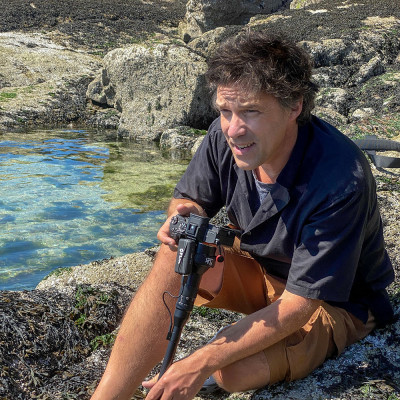
Patrick Keeling
Professor, Department of Botany at the University of British Columbia and Canada Research Chair in Microbial Diversity and Evolution
Research in the lab is generally related to the molecular evolution and cell biology of eukaryotes, in particular the protists (i.e., eukaryotes that are not animals, fungi, or plants). Protists are mostly single celled organisms, but many are extremely complex and sophisticated despite their small size. Protists also represent the greatest part of eukaryotic diversity, although most protists groups are very poorly studied, especially at the molecular level. We use molecular biology, microscopy, and increasingly use genome wide analyses such as EST sequencing and genome sequence surveys to study a number of questions in different lineages of protists. Much of our research focuses on cellular organelles, in particular mitochondria and plastids. These organelles originated by endosymbiosis, or the uptake and retention of a bacterium (the endosymbiont) by a eukaryote (the host). In the case of mitochondria this involved an alpha-proteobacterium and took place around the origin of eukaryotes. Plastids originated more recently from a cyanobacterium. Plastids have also spread between eukaryotic lineages by a process called secondary endosymbiosis. In this case, a plastid-bearing alga is itself taken up by another eukaryote, and its photosynthetic apparatus is retained by this new, secondary, host. Another major focus of the research is the transition of free living organisms to parasitism and how this affects their organelles and metabolism. Below are short descriptions of several projects currently underway.